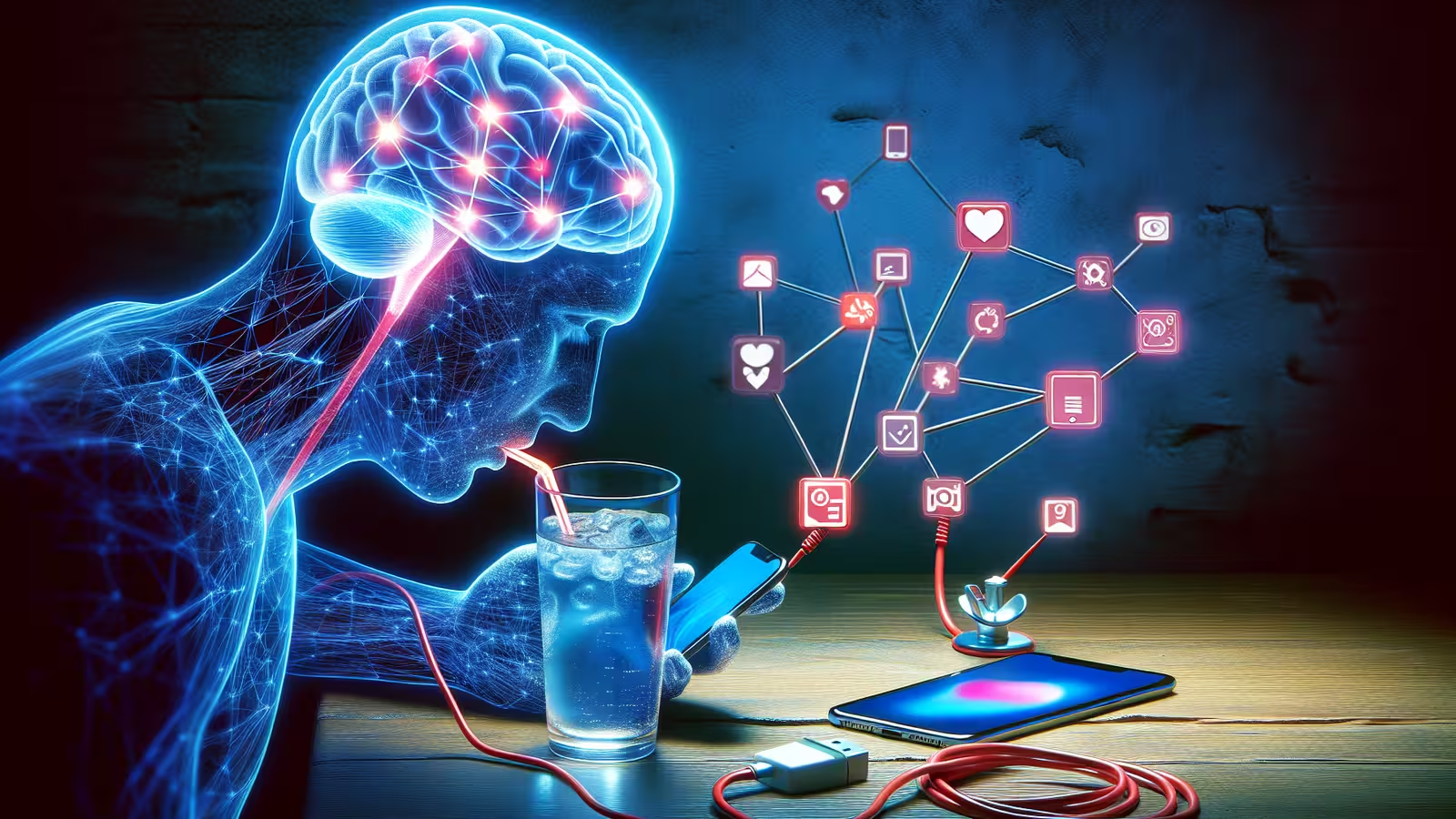2 Minutes
In today's modern world, the constant use of smartphones has become an integral part of daily life. However, research indicates that growing dependence on smartphones can negatively impact both the structure and function of the brain.
Effects of Smartphone Addiction on the Brain Recent studies suggest that excessive smartphone use may reduce gray matter in regions responsible for emotion regulation, memory, and decision-making. These brain alterations resemble the changes observed in substance addiction, highlighting the seriousness of digital dependence.
The Role of Dopamine in Smartphone Addiction Dopamine, a key neurotransmitter in the brain's reward system, plays a crucial role in smartphone addiction. Frequent smartphone use leads to an overproduction of dopamine, which can result in dependency and decreased sensitivity to this chemical over time.
7-Step Protocol to Reduce Smartphone Dependence Renowned neuroscientist Dr. Andrew Huberman has proposed a seven-step protocol for reducing smartphone addiction:
-
Limit Nighttime Use Avoid using your smartphone between 10 PM and 7 AM and keep it out of the bedroom. This promotes better sleep quality and helps maintain healthy morning dopamine levels.
-
Resist Morning Checking Refrain from checking your phone immediately after waking up. This allows your brain time to reset and recalibrate at the start of the day.
-
Reduce Screen Brightness at Night After 8 PM, lower your screen brightness and use a blue light filter to help minimize negative effects on the brain.
-
Replace Digital Dopamine with Natural Sources
- Spend at least 30 minutes in natural sunlight each morning.
- Engage in physical exercise to boost dopamine naturally.
- Interact with others in person.
- Focus on one task at a time without distractions.
-
Disable Unnecessary Notifications Turn off non-essential notifications to reduce distractions and lower stress levels.
-
Avoid Multitasking Concentrate on one task at a time to improve productivity and focus.
-
Weekly Digital Detox Take a break from all digital devices for 24 hours once a week to give your nervous system time to recover.
Conclusion Smartphone addiction can have significant negative effects on the brain and mental health. By following these recommended protocols, it is possible to reduce smartphone dependency and enhance overall quality of life.
Source: ding



Comments